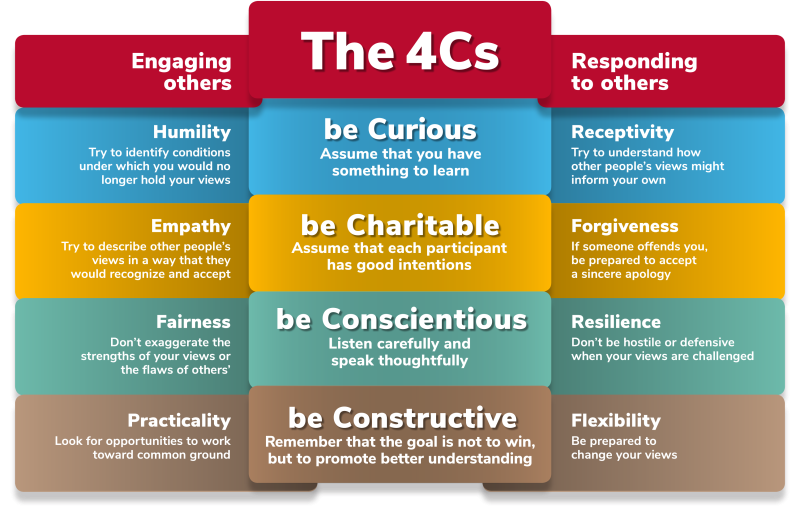What is Civil Discourse?
Civil discourse is crucial for several reasons, particularly in fostering a healthy, functioning society.
Civil discourse allows people to listen to opposing viewpoints, question their assumptions, and consider alternative perspectives. This helps bridge divides, encourages mutual understanding, and fosters cooperation among individuals and groups. It ensures that decisions are made through reasoned discussion rather than through force or intimidation. By engaging others thoughtfully, individuals can more effectively promote social, political, and cultural progress.
Civil discourse requires that we subject our beliefs and values to criticism. It can therefore make us feel uncomfortable, threatened, or even angry. It’s important to keep in mind that being criticized isn’t the same thing as being silenced, and that questioning someone’s beliefs isn’t the same thing as questioning their right to hold or defend them. Moreover, avoiding or being sheltered from ideas that challenge or offend us can be detrimental to ourselves and our community. Having our beliefs challenged is a necessary condition for improving our understanding, and engaging in civil discourse is a necessary condition for building the knowledge, skills, and relationships that make a flourishing democracy possible. A political community whose citizens are unwilling or unable to engage constructively across lines of disagreement doesn’t have a healthy or sustainable civic culture.
That doesn’t mean that anything goes. Speech that doesn’t aim at expanding knowledge or promoting understanding, but rather at shutting down discussion, provoking a reaction, or deliberately confusing the issue has no place in civil discourse. Neither does speech that undermines or calls into question the ability of some people or groups to participate as equals in public life.
https://cehv.osu.edu/civil-discourse-citizenship/rationale
Guidelines for Civil Discourse
4Cs of Civil Discourse

https://cehv.osu.edu/civil-discourse-citizenship/4cs-virtues-civil-discourse